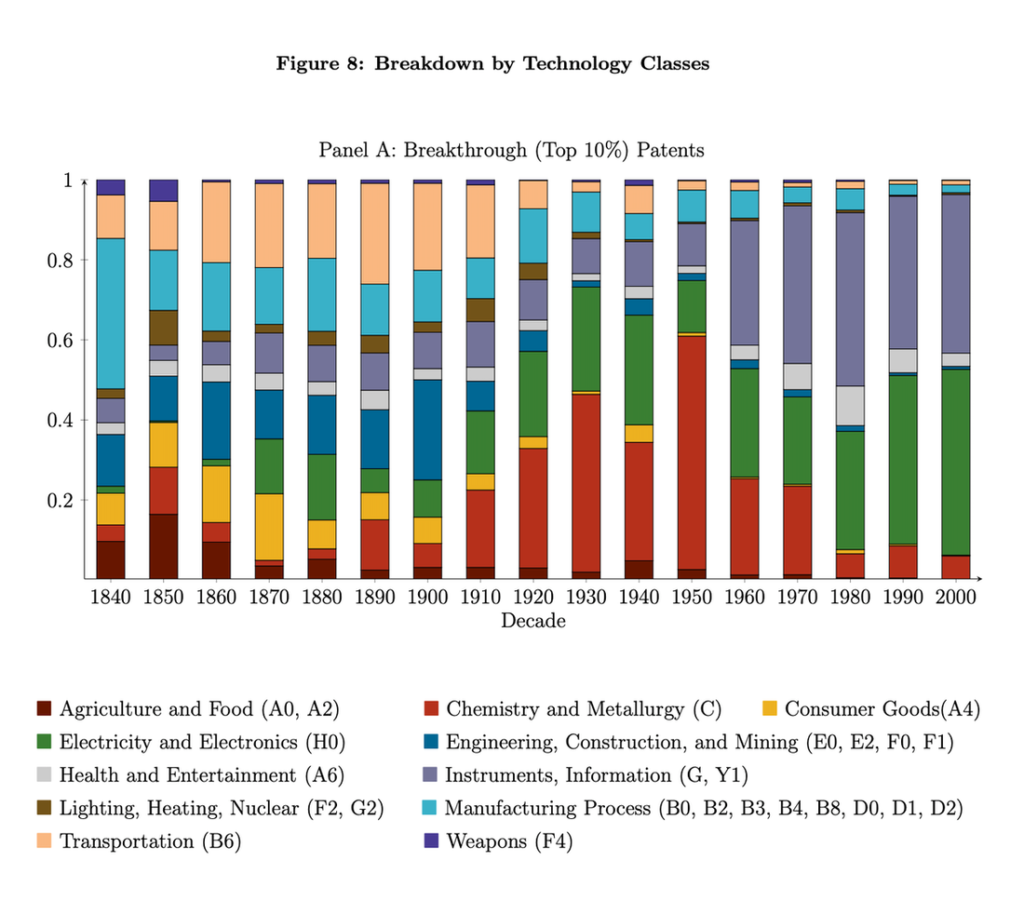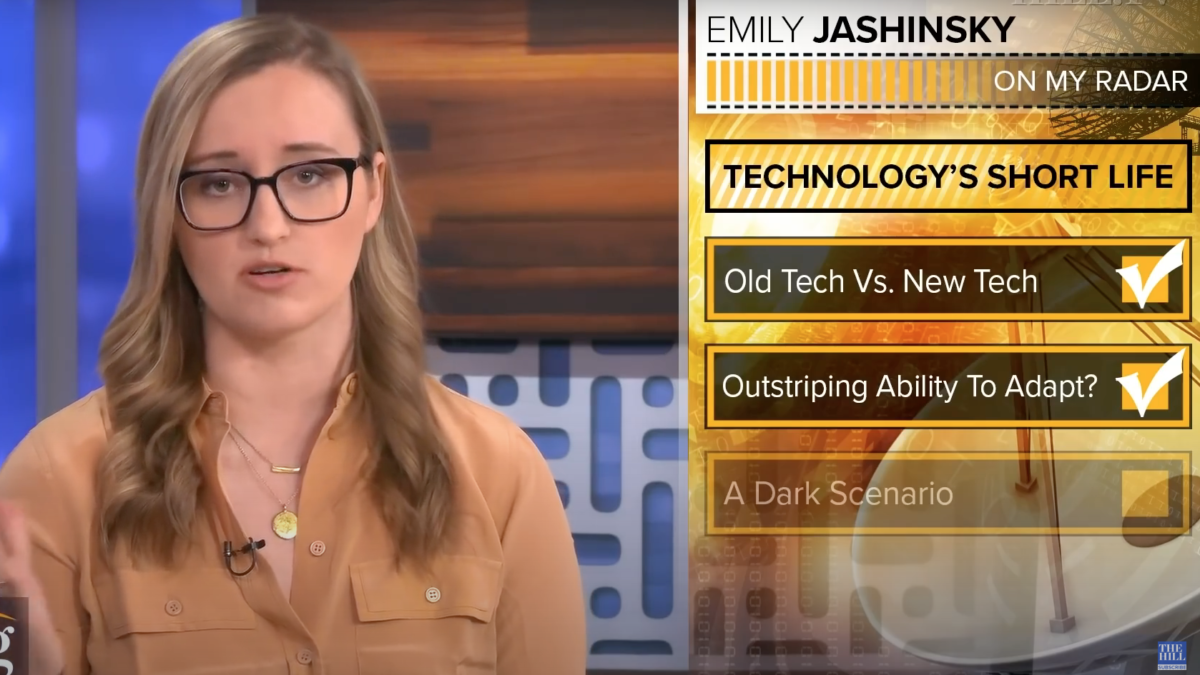The following is a transcript of my radar from Tuesday’s edition of “Rising” on HillTV.
I learned something truly ridiculous about Betty White in one of the many tributes to her that aired last week. White’s first appearance on television was on an experimental broadcast that aired in 1939. She was 17. It was the same year “Gone With The Wind” and “The Wizard of Oz” were released.
“When people started looking at television, I think they were going to have a box in their room, everybody was like, ‘Yeah, it’s another passing fad,’” Frank Scherma of the Television Academy told NBC last week.
What makes this fact about White’s life ridiculous is that it puts into perspective the short life of a technology that feels old. Her career spanned the entire history of television. White lived a long life, but that makes television extremely new, especially for a technology that is now the most popular leisure activity in the country, according to the Bureau of Labor Statistics.
Consider this headline from U.S. News: “Outside of Sleeping, Americans Spend Most of Their Time Watching Television.”
This is a technology that was a joke when Betty White, a woman who just passed away, first appeared on it.
When Clay Aiken announced his second run for Congress on Monday, the Democratic hopeful started his announcement video with a walk down memory lane. “Back when we first met, there was no Facebook, there was no Twitter … there was no smartphone,” he said.
That was less than 20 years ago!
We like to think of television as old. Radio and photography and cars and airplanes and phones and fast food and birth control, too. Nuclear technology feels like history. Buzzfeed even makes us feel nostalgic about the early days of Facebook but regular books aren’t actually that old. These are all inventions that changed the way humans live dramatically, from sex and reproduction to work to family proximity.
Look at this chart from the beginning of “Sapiens” by Yuval Noah Harari.

Consider that the first dated, printed book is about 1,100 years old. The Gutenberg Bible is less than 600 years old. These technologies that feel old to us have existed for essentially a blip on the radar of human existence. When you narrow it down to smartphones and social media, radical changes to human life have been induced in the historical blink of an eye.
The reason reading Marx can feel so immediate is that he was reacting to the very same adjustments in human life amid the Industrial Revolution — adjustments that were legitimately progressing human civilization but at a serious cost. We are still in the very same fog of war, although the pandemic gave us a bit of clarity.
The best book I read in 2021 was Bret Weinstein and Heather Heying’s “A Hunter-Gatherer’s Guide To The 21st Century.” In it, they argue, “Our species’ pace of change now outstrips our ability to adapt.”
“We are generating new problems at a new and accelerating rate, and it is making us sick—physically, psychologically, socially, and environmentally,” they write. “If we don’t figure out how to grapple with the problem of accelerating novelty, humanity will perish, a victim of its success.”
I’m going to read one more block of text from the book’s introduction because it captures the state of affairs well:
“[H]umans are extraordinarily well adapted to, and equipped for, change. But the rate of change itself is so rapid now that our brains, bodies, and social systems are perpetually out of sync. For millions of years we lived among friends and extended family, but today many people don’t even know their neighbors’ names. Some of the most fundamental truths—like the fact of two sexes—are increasingly dismissed as lies. The cognitive dissonance spawned by trying to live in a society that is changing faster than we can accommodate is turning us into people who cannot fend for ourselves.”
They call our world “hyper novel,” a term we should popularize in order to popularize our understanding of modern life, of why we’re shockingly overweight, riddled with depression and anxiety, overdosing on synthetic opioids, fighting with strangers thousands of miles away about pop stars, struggling with fertility, and more. When we talk about political news, we must talk about it in this context. When we try to live happier lives on an individual basis, we should do so in this context.
We spent all of last week mired in a nasty relitigation of a national tragedy that mostly danced around the real story. We’re not meant to consume information in this way or relate to other people in this way. While people with Equinox memberships are celebrating obesity, people who work multiple jobs just to live paycheck to paycheck are getting by on whatever they can grab quickly.
We need to handle monopolies that are making companies unresponsive to demand. That also goes for politicians who are less responsive to voter demand, as Sen. Ossoff is trying to do with his bill banning members from trading stocks. I do hope he finds a Republican cosponsor for that bill.
People who sense the system isn’t working are right. Some things get better, some things get worse, but if the rate of change for the better slows, it feels a whole lot worse.
Back in March, Ross Douthat used this chart on patents to illustrate tech stagnation over time, arguing that Robert Gordon was right to say what’s happened since the 70s “wasn’t so much the end of innovation as its concentration in just a few sectors, tech above all, after a long period when progress was happening across a much wider range of fields and industries.”

“So that’s where we’ve been,” Douthat wrote, echoing his book The Decadent Society. “No flying cars, no ‘Jetson’s stuff,’ no vibranium or cold fusion, just really sleek and speedy delivery systems for pornography, video games and (God help us) political commentary.”
Douthat sees signs the stagnation and/or concentration might be coming to an end. “If you’re looking for paths out of decadence, there’s enough technological work coming to fruition to make the 2030s and 2040s look, if not quite like an age of wonders, at least more like what preceded the Apollo program than what has happened since,” he wrote.
After laying out a “dark scenario,” Douthat flirted once again with optimism. The dark scenario, he said, “assumes that virtual entertainments, simulated realities and dream palaces can’t themselves become the site of a renaissance, the place where creativity takes off and America reinvention happens once again.”
Maybe so. That will depend on our ability to understand technology’s interaction with our bodies, and demand from politicians and executives healthy innovations.
Betty White was more than a sitcom legend, she was a symbol of a popular culture that is dying in front of our faces, of a time when more than 50 million people were watching “I Love Lucy,” as “Being the Ricardos” points out, and technology created mass media that tapped into shared cultural values. You can’t really do that anymore, because of technology, which is dividing us.
And so Betty White is a soft symbol of everything we’re losing, from popular sitcoms to water cooler conversations to the shared experiences those created and reinforced. There are advantages and disadvantages to all of this. Absolutely. But we need to be aware it’s what’s happening.









